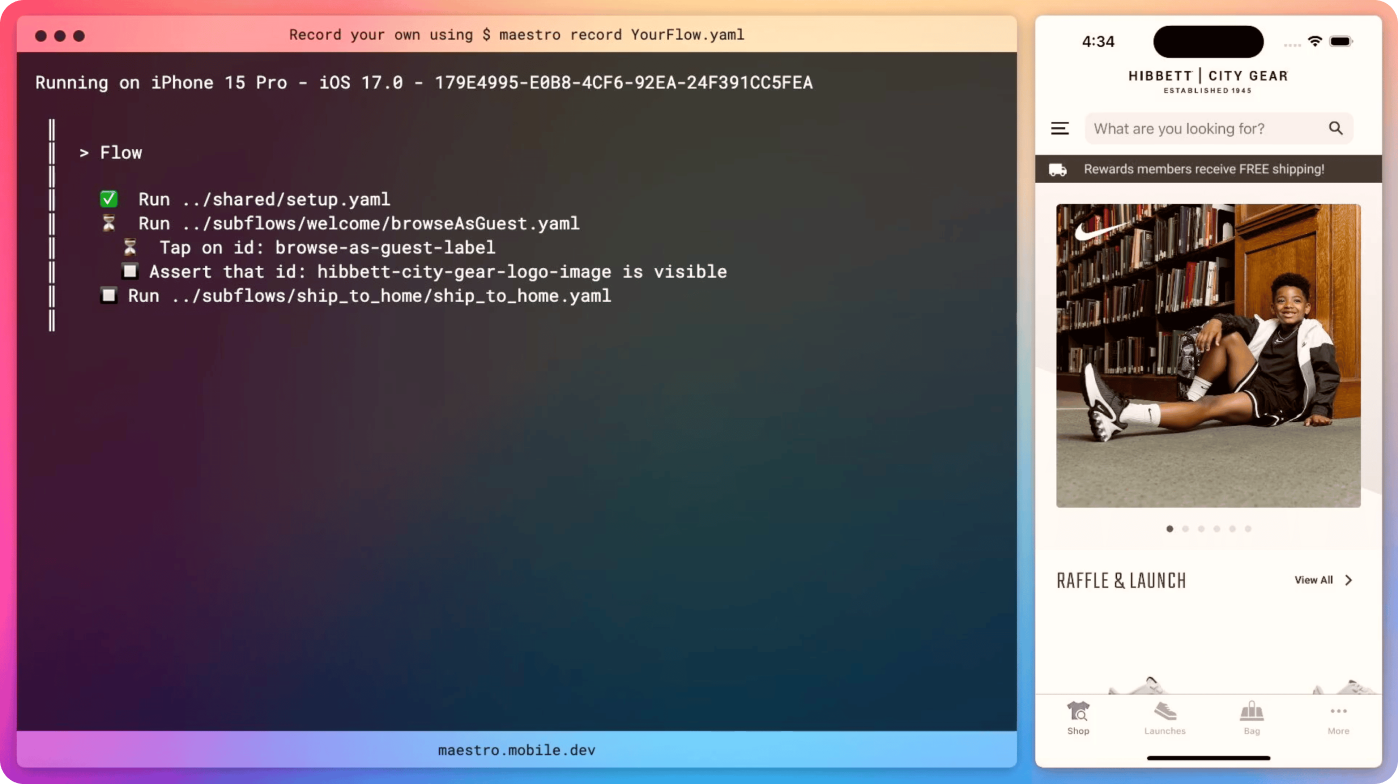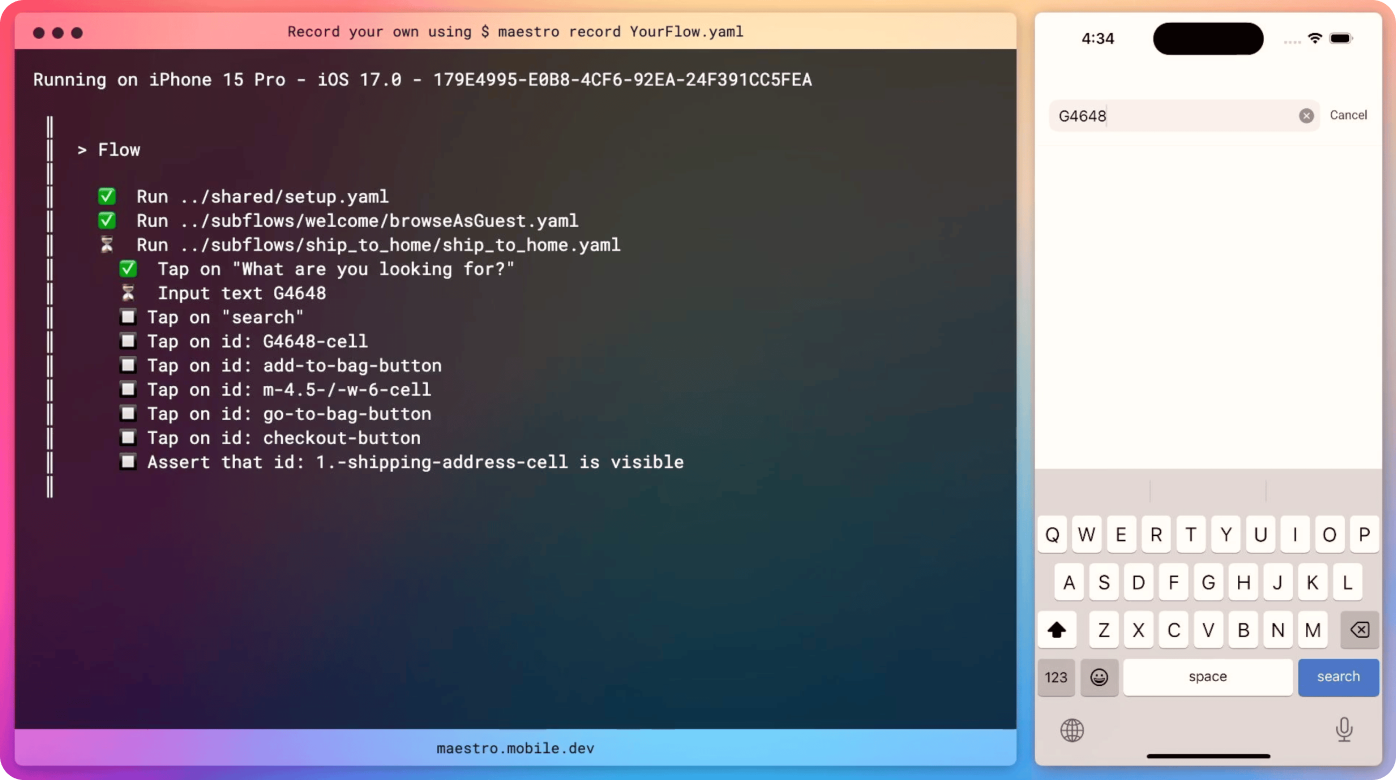NEW LAUNCH: Weill Cornell Medicine's Maya app is now available for Android!
NEW LAUNCH: Weill Cornell Medicine's Maya app is now available for Android!


Maestro is a state-of-the-art end-to-end (E2E) testing tool for iOS and Android mobile UI testing. It provides a more streamlined and efficient approach than traditional tools like Appium, XCUITest, and Espresso.

Image taken from maestro.mobile.dev/
Dual Platform Support: Comprehensive testing for both iOS and Android, ensuring smooth operation across major mobile ecosystems.
Non-Intrusive Integration: Integrates smoothly into existing workflows with minimal code refactoring, reducing disruption to your current processes.
User-Friendly: Intuitive interface and straightforward setup mean you can start testing quickly without needing extensive technical know-how.
Efficient Workflow: Streamlines the entire testing process from creation to execution and analysis, saving time and resources.
Ease of Learning: Maestro is designed to be user-friendly, making it easy for new users to get up to speed quickly.
Local Testing with Maestro Studio: Enables efficient local testing, allowing developers to test and debug locally before pushing changes.
Tracking and History: Provides robust tracking and history of tests, which is essential for monitoring progress and maintaining accountability.


Simpler Setup: Faster and easier to set up, Maestro reduces the time and technical expertise needed to get started.
Seamless Integration: Works effortlessly with existing CI/CD pipelines, supporting continuous integration and delivery.
Minimal Disruption: Maestro’s non-intrusive approach means less code modifications compared to other tools, allowing for smoother adoption.
Rapid Development Cycles: When you need quick feedback and fast iteration without extensive setup times.
Cross-Platform Testing: Ensuring consistent behavior across both iOS and Android without maintaining separate test suites.
Continuous Integration Environments: Seamless integration with CI/CD pipelines for automated testing and quick deployments.
Teams with Varying Expertise: Its user-friendly interface makes it accessible for teams with different levels of testing experience.

Design Quality Check Limitations: Maestro may have some limitations in thoroughly checking design quality, potentially missing some visual issues.
List Handling and Scrolling Issues: List handling and scrolling within tests may require extra attention.
Execution Time Limits: Some tests may hit execution time limits, requiring strategy tweaks for longer test scenarios.

Our emails are (almost) as cool as our digital products.
Your phone will break before our apps do.

© 2026, Heady LLC.